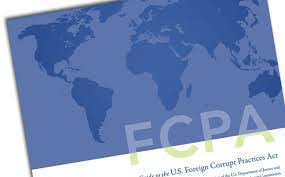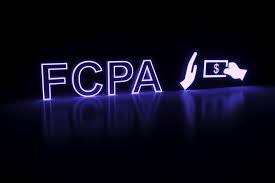Revised FCPA Guidance: New Case Updates (Part II of V)

Over the last eight years, FCPA litigation has increased. Companies are still avoiding the risks of litigation and losing to the Justice Department and the SEC. Individuals, on the other hand, have clear incentives to challenge DOJ’s FCPA interpretations, where appropriate, and they have done so.
The Revised FCPA Guidance incorporates these new cases throughout the text and its numerous footnotes. The major additions include:
The Definition of “Foreign Official” (Page 20)
Foreign officials under the FCPA include officers or employees of a department, agency or instrumentality of a foreign government. In 2014, the US Court of Appelas for the Eleventh Circuit, in United States v. Esquenazi, addressed the definition of the term “foreign official” in the FCPA, and specifically whether the term “instrumentality of a foreign government” includes state-owned and state-controlled entities.
The Eleventh Circuit, in Esquenazi, ruled that the term “instrumentality” encompasses “an entity controlled by the government of a foreign country that performs a functions the controlling government treats as its own.” While the Esquenazi Court noted the inquiry is fact-specific, the Court listed several (non-exhaustive) factors to determine if the government controls a specific entity: (1) the foreign government’s formal designation of the entity; (2) whether the government has a majority interest in the entity; (3) the government’s ability to hire and fire the entity’s principals; (4) the extent to which the entity’s profits, if any, go directly into the government fiscal accounts, and, by the same token, the extent to which the government funds the entity if it fails to break even; and (5) the length of time these indicia have existed.

To determine if the entity performs a function that the government treats as its own, the Eleventh Circuit listed the following (non-exhaustive) factors: (1) whether the entity has a monopoly over the function its exists to carry out; (2) whether the government subsidizes the costs associated with the entity providing services; (3) whether the entity provides services to the public at large in the foreign country; and (4) whether the public and the government of that foreign country generally perceive the entity to be performing a governmental function.
Local Law Defense (Page 24)
To rely on the local law defense, a defendant must establish that the “payment, gift, offer, or promise of anything of value that was made, was lawful under the written laws and regulations of the foreign official’s country or political party at the time of the offense. In practice, the local law defense rarely is used to defend against an FCPA violation.
In United States v. Ng Lap Seng, the district court rejected defendant’s request for a local law defense jury instruction. The defendant was convicted of conspiracy to violate the FCPA, bribery and money laundering stemming from a scheme to bribe two United Nation ambassadors. At trial, the defendant claimed that the local laws of Antigua and the Dominican Republic authorized the payments. The court denied the defendant’s request because its interpretation of Antigua and Dominican Republic laws did not support the defendant’s claim.
Aiding and Abetting and the Hoskins Case (pp. 35-36)
A foreign company or individual may be held liable for conspiracy or aiding and abetting an FCPA violation. These principles can be challenging when a foreign company or individual did not act in furtherance of the corrupt payment while in the territory of the United States.

In United States v. Hoskins, the Second Circuit limited application of conspiracy and aiding abetting to include an individual who is not otherwise covered by the FCPA anti-bribery provisions. In other words, an individual must fall under the coverage of the specifically enumerated categories listed in the FCPA’s anti-bribery provisions for the individual to be liable for aiding and abetting or conspiracy.
Disgorgement (Page 37)
The SEC’s power to order disgorgement as an equitable remedy is subject to the five-year statute of limitations. In Kokesh v. SEC, the Supreme Court ruled that because disgorgement constitutes a “penalty” for purposes of the five-year statute of limitations. The five-year period begins to run when the claim first accrued.
Statute of Limitations (pp. 36-37)
The FCPA’s anti-bribery and accounting provisions for criminal cases does not specify a statute of limitations. The general five-year limitations period applies to criminal FCPA anti-bribery violations. In civil cases brought by the SEC, the statute of limitations is five years. However, for violations of the FCPA accounting provisions (books and records and internal controls), which fall under the definition of “securities fraud offense[s] under 18 § 3301, there is a limitations period of six years.















